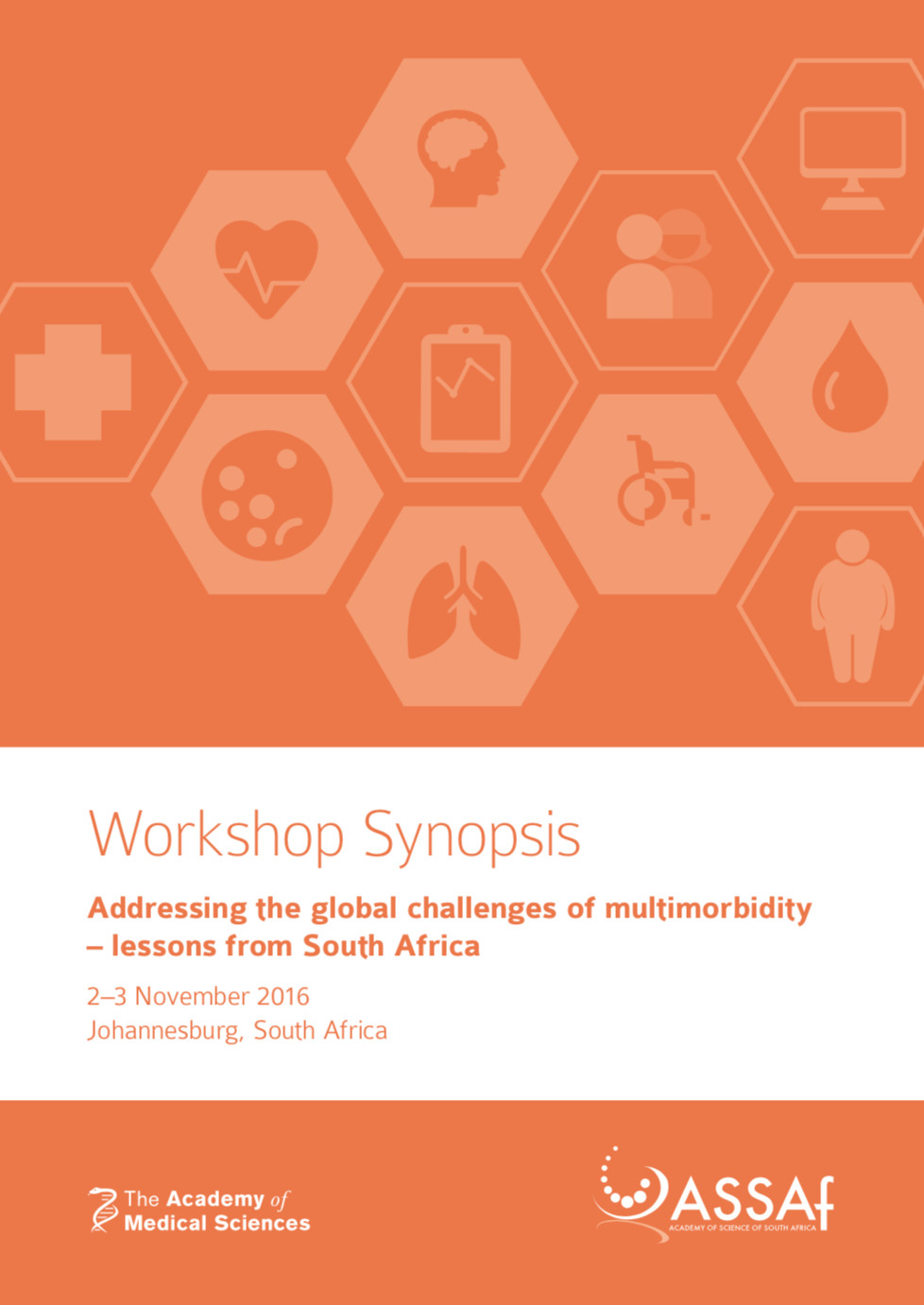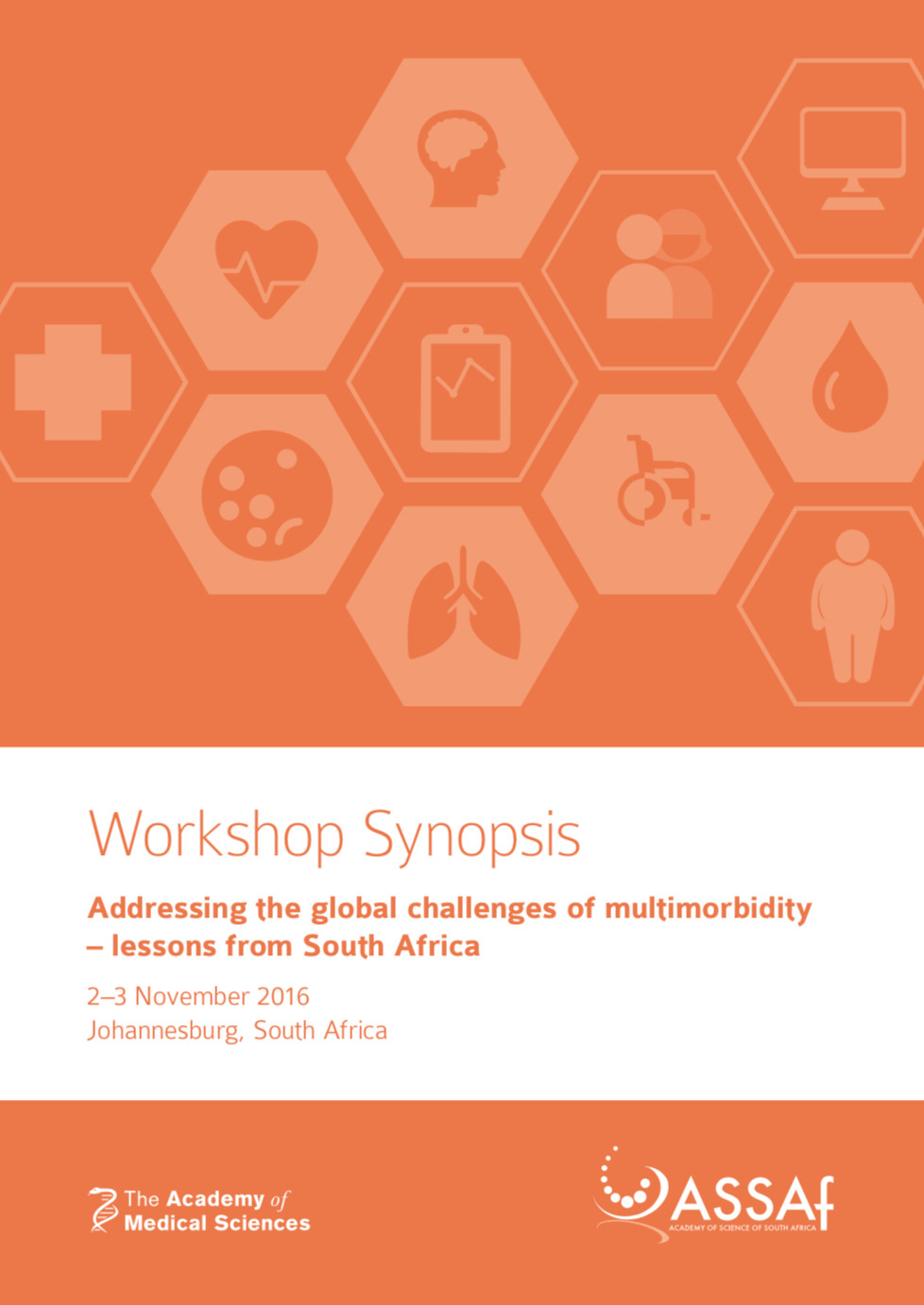The Academy of Medical Sciences, in partnership with the Academy of Sciences South Africa, have today launched two reports (synopsis and proceedings) and an animation on multimorbidity in South Africa.
Throughout the world, as life expectancy increases, the population incidence of non-communicable diseases (NCDs) is also increasing. In addition, communicable diseases continue to affect millions of people every year. All of these factors together mean that multimorbidity has become, and will increasingly be, an international health challenge.
The meeting reports and animation summarise the discussions held during a two-day multimorbidity workshop of key stakeholders from South Africa and the UK on 2 and 3 November 2016. Workshop participants considered the problem of multimorbidities in both countries, and asked how we can achieve a more coherent and consistent approach to defining, researching, and addressing this issue.
Some of the key messages from the workshop included:
- Multimorbidity is a growing global health challenge that affects a large proportion of the world’s population. However, as multimorbidity is a complex issue, it has proven difficult to agree on a single definition, as the definition may differ depending on the context e.g. within a research setting or a clinical setting.
- Multimorbidity is growing in prevalence as a result of both an epidemiological shift and a demographic shift.
- Multimorbidity is more common in the elderly so it will be a particular burden in low- and middle-income countries (LMICs) such as South Africa as life expectancy continues to rise.
- Multimorbidity is often associated with socioeconomic status, with those from poorer socioeconomic backgrounds more at risk of developing multiple diseases.
- The current single-disease model is outdated and unhelpful when dealing with the increasing burden of multimorbidity.
- Policymakers worldwide need to better address health inequalities and support the complex service needs of a growing multimorbid population.
- There is a gap between the knowledge of and the ability to address the high mortality from chronic conditions in South Africa, and there are difficulties in the implementation of integrated disease care.
- Mental health is central to the management of multimorbidity and should not continue to be ignored.
- Health systems should be developed so that, in addition to providing adequate treatment and management, they are better able to diagnose multimorbidity, assess its severity and monitor it.
- The patient perspective is vital and any research recommendations must reflect patient priorities.
The two reports and animation will be disseminated to stakeholders in both South Africa and the UK and have informed the Academy’s other work on multimorbidity. To read more about the Academy's wider work on multimorbidity and the challenges posed by this issue, visit our dedicated 'Addressing the global challenge of multimorbidity' policy project page.
The workshop, reports and animation are funded by the Global Challenges Research Fund (GCRF) to support cutting-edge research that addresses the challenges faced by developing countries. To read more about the Academy’s GCRF work, visit our dedicated GCRF policy project page.

